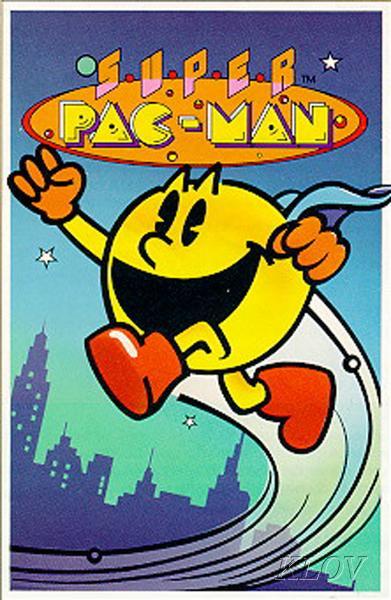
Rick Perry’s campaign seems to be a little strapped for cash. But, his super PACs have plenty of money. What gives? Is this just bad management, or possibly a systemic regularity tied to the hot mess that is the race for the GOP presidential nomination?
It’s no secret that super PACs have changed the nature of the (early) election cycle. They are currently taking in over 80% of the campaign contributions. While this disparity is understandable (super PACs can accept unlimited donations from a single individual, whereas candidates can essentially accept no more than $5400 from any individual and $5000 from any PAC—see here), it is nonetheless striking.
Though the super PACs are well-funded, Perry’s support to date is apparently quite narrow. Some have interpreted this as a problem with/for Perry, with which I don’t disagree, but I want to forward a different story. Namely, I think that the narrowness of that support is at least possibly by design. Not by Perry’s design, but rather by goals of the donors.
Super PACs are easily created and highly flexible. They work by spending to directly affect elections, and though the ones discussed in the current media cycle are associated “with” a particular candidate, they are not bound to hold true to that association. More importantly, as Perry’s current situation lays bare, it is actually fairly difficult for a super PAC to step in and bail out, even indirectly, a flagging campaign. This is because of the 120 day “cooling off period” (see here) that the FEC requires before a former employee of a campaign can be “involved with independent expenditures” (e.g., hired by a super PAC). This arms-length restriction bolsters the independence of the super PACs—from the candidate(s) with which they are associated—and solidifies the sway held by a super PAC’s mega-donor.
The proliferation of super PACs is probably contributing to the bulge of GOP candidates, but the real impact of the change is not that big money is “taking over” politics. Rather, the new wild, wild west of campaign finance has lowered the cost of entry into an all-pay auction of sorts: the evidence is clearly consistent with a story of “lots” of rich people seeking influence over the election, but the more interesting story is how these mega-donors are seeking it. Mostly, they aren’t bidding for the same candidate’s attention. Instead, they are jump-starting “new” campaigns. While this might seem to imply that these mega-donors are trying to buy “their own man” into the White House, I think that it is actually better thought of as a branding strategy. Right now, Perry’s super PACs are deploying staff and ads in Iowa (see here, for example). Perry is polling horribly among GOP voters in Iowa (less than 1% in today’s poll—see here). Why spend the money here? Why spend the money on Perry at all? Because if it works even a little, these mega-donors—and their super PAC organizations—will have more leverage bargaining with the real contenders for the nomination.
Spending money on Perry in Iowa has a great “upside” for the super PACs in terms of demonstrating their effectiveness. Perry’s rise, if it occurs, will
- Look dramatic—if he polls at 2%, then his support will have doubled.
- Be nearly solely attributable to the super PACs, because nobody else is fighting for Perry.[1]
Together, Rick Perry is kind of like Atari or Polaroid—brand names that have positive name recognition but are available on the cheap—and presents a great opportunity for a mega-donor (and his or her campaign staff) to demonstrate their expertise, build their clout. Running a campaign is hard, and the proliferation of mega-donors lays bare something that political scientists have known for a long time: money is a necessary, but not sufficient, condition for electoral success. There’s “plenty” of billionaires who love attention and care about politics. But, by definition, there are precious few “top campaign organizations.” Electoral politics is a competitive sport, and what matters is not how much money or talent you have, but how much more you have than your competitors.
If you’re depressed by the money in politics, take heart: there are two awesome parts of this take on the new reality. First, these mega-donors are (at least partially) throwing their money around fighting one another. Second, the people being played hardest are the megalomaniacal politicians who are spending (a lot of) their own time running essentially “trial balloon campaigns.” In other words, while super PACs might have at first seemed like a boon for candidates who sought relief from the constant need to raise money in relatively small increments from lots of donors, it seems now that they have the potential to eat exactly those candidates by being
- infinitely lived,
- legally untied to any specific campaign, and
- operationally having a “120-day cooling off period” barrier to insulate themselves.
Super Pac-Man came out 33 years ago, the second sequel to Pac-Man. Quoting wikipedia, the link may be deeper than simply nomenclature:
[Super Pac-Man’s] new gameplay mechanics were considered by many to be confusing, and too much of a change from the original two games. In particular, when Pac-Man transforms into Super Pac-Man, he was thought by some to be much more difficult to control.
Life imitates art, perhaps. With that, I leave you with this.
[1] In addition, Perry’s campaign clearly isn’t going to be credited with any bump in the poll numbers, because it’s broke. That raises other moral hazard problems (super PAC for candidate X might want to starve candidate X’s campaign) that are interesting, but I’ll leave them to the side for now.
